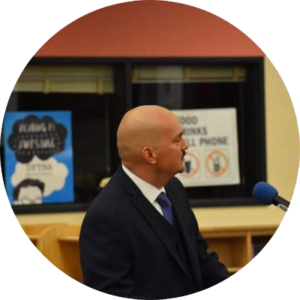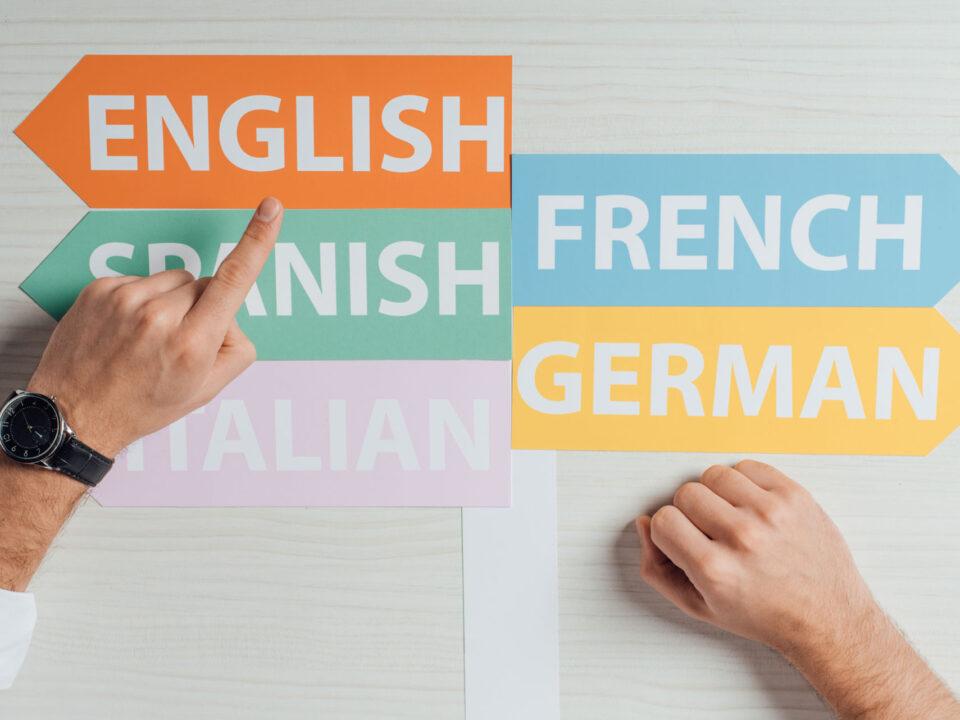
Do you have an Equity Mindset?
September 8, 2019
Culturally Responsive Recruiting Requires Woke and WORK. Are you ready?
January 20, 2020David (name has been changed) started running. Fast. He ran down the hall, down the stairs and stopped at the exit door. He paused, looked at the door and started running again down the hall. He had thrown objects at staff minutes beforehand. My limited Spanish did not break his stride. One of our paraeducators stopped David in his tracks with the soothing sounds of his native language, his mother’s language. After a few minutes of conversation, David took her hand and walked toward class. I thought about his story and how that story was becoming a common place narrative in our schools today.
Recent headlines from The Washington Post such as “Officials defend ICE raids that seized parents” Friday, August 9, 2019 and “ICE raids target workers, but few companies are charged” Saturday, August 10, 2019 further underscore the urgency for professional educators to become versed in trauma sensitive pedagogy. These are the realities many of our students are living on a daily basis. We may read headlines and talk about their impact with our colleagues and loved ones, but for our families, these headlines are their kitchen table discussions every day and night. Bearing this emotional weight on their shoulders, our students come into our buildings every morning. How do we ensure we are meeting their needs, where they are, not where we think they are, based on our previous learning. Today’s political climate has forced these realities into our buildings vicariously through the families we serve.
Bruce Lee, the martial artist/movie star/philosopher, was many things to a lot of people. He was always a student first. He was fond of re-telling the Buddist tale of The Empty Cup. The Empty Cup referred to one’s ability to learn. Long ago, a prospective Zen student asked a Zen master to teach him. As the Zen master started teaching, the student kept interrupting the Zen master with his own experiences and prior learning. Finally, the Zen master reached for the tea pot and offered to pour some tea. The Zen master kept pouring the tea until the student’s cup was overflowing. The student asked why he kept pouring even when there was no room left in the cup. The Zen master replied that the usefulness of a cup is in its emptiness. Only then can one fill their cup with new learning. One must empty their cup to be able to receive new learning. Trauma sensitive pedagogy was my new learning.
Trauma sensitive pedagogy is an instructional framework for young students that is grounded in a developmental perspective that focuses on learning. Trauma sensitive pedagogy focuses on instructional strategies that seek to improve academic and social outcomes for children with Adverse Childhood Experiences (ACES). Children with an ACES background are not new to professional educators, however an organized framework of research based instructional practices developed for our most vulnerable learners is most certainly new learning for their cups. Trauma informed practitioners are attuned to the importance of a student’s social-emotional learning in addition to the academic learning. Sometimes, the former will outweigh the latter.
Last summer, the University of Maryland, in partnership with Penn State University, partnered with a group of ten educators from New Hampshire Estates Elementary School to launch a trauma informed pedagogy pilot project. New Hampshire Estates Elementary School is a Title I primary school in the Montgomery County Public Schools system in Maryland. We serve about 475 students. We are about 75% Latino, 67% of our students are learning English as a second language (ESOL) and we are 90% free and reduced meals (FARMS). Ten staff members from New Hampshire Estates volunteered for this project. The staff members included in this pilot project were a diverse mix of ethnicities and job descriptions. We had a team of classroom teachers, ESOL teachers, counselors, paraeducators, administrators and a therapist from our Linkages to Learning program that comprised our cohort.
Dr. Christy Tirell-Corbin, University of Maryland, Dr. Carlo Panillo (Pennsylvania State University) and their team of graduate assistants, led our learning in the summer of 2019. We began to learn about the effects of chronic and acute trauma and the differences between them. We discussed cases studies and we also talked about David’s story and how his trauma has prevented him from being available for learning. Corbin and Panillo instructed us to identify a problem of practice. Through their guidance, we identified our problem of practice and drilled down to an actionable goal. Our goal would be to increase access to high quality, trauma informed support structures for our students, families and staff. We identified a primary driver of building a supportive community and three secondary drivers of staff, students and families. In subsequent meetings, the team discussed models and programs that would act as change agents to reach our stated goal. Some of these identified changes were in place or in various phases of development. We identified the supports we currently have in place at NHE such as: Linkages to Learning, counseling lessons, mentor programs, Principal Parent Coffees, Family Learning Nights and our new Watch D.O.G.S. program. We also continued our commitment to provide a calm, caring and predictable environment for our students.
David and his family made the trek from El Salvador to the U.S.-Mexico border. The journey took five months across unforgiving desert and other unnamed traumas. They were detained at the border and David’s father was sent back. David and his mother were housed in a cage. They were released and struggled to find their footing in Houston, TX. It was here that David suffered a head injury when he was placed head first in a large trash bag, closed it and swept him up in a violent manner, making him hit his head on the concrete floor. David and his mother fled to New York and stayed for a few months until they moved again, this time to our school community. David is five years old. He is a bright and curious Kindergarten student. At first, he positively responded to only Spanish speaking staff. Presently, at times, he has responded to relationships before hearing his native language. However, he has also exhibited unsafe and violent behaviors that make him unavailable for any social or academic learning. He is constantly living in an amygdala hijack. Our trauma team leaned forward and emptied our cups.
We also learned about secondary trauma. According to the American Counseling Association, “Teachers, who are directly exposed to a large number of young people with trauma in their work, a secondary type of trauma, known as vicarious trauma, is a big risk. Sometimes called the “cost of caring,” vicarious trauma can result from “hearing people’s trauma stories and becoming witnesses to the pain, fear, and terror that trauma survivors have endured”. (Christos, Immigration Concerns, presentation 8/27/19). Left unchecked, secondary trauma can adversely affect one’s work and home lives. School leadership would be well advised to build structures to support staff such as the Tap In/Tap Out strategy or staff social times. Tap In/Tap Out works when a staff member needs a few minutes in private before they return to their work. Staff have previously set up a Tap In/Tap Out buddy and use it when warranted. I talk to my staff constantly about the importance of self care. You can’t effectively build relationships and teach students if you haven’t taken care of your home life first.
My learning about trauma sensitive pedagogy was made possible through our collaboration with each other. My writing is a product of those summer hours learning together in room 229. Our work will help us become trauma informed practitioners who will develop and implement research based instructional strategies in the classrooms. Staff members who are cognizant of the impact trauma has on our students and have a grounding in trauma sensitive pedagogy, are better equipped to support and teach our most vulnerable learners like David in our schools.
Notes:
The 2019-2020 NHE Trauma Cohort: Jennifer Baah (ESOL), Vicky Christos (ESOL -team leader), Hannah Franklin-Gillette (Grade 2 teacher), Janel Frazier (Grade 1 teacher -team leader), Lillian Fulcher (Math Focus Paraeducator), Robert Geiger (Principal), Ellie Kleinman (Counselor), Jacquelin Marquez (Therapist), Alison Reside (Special Education teacher -team leader), Thomas Ryan (Assistant Principal)
Special Thanks to Dr. Christy Tirell-Corbin, University of Maryland and Dr. Carlo Panillo (Pennsylvania State University) for their leadership during this pilot project.





